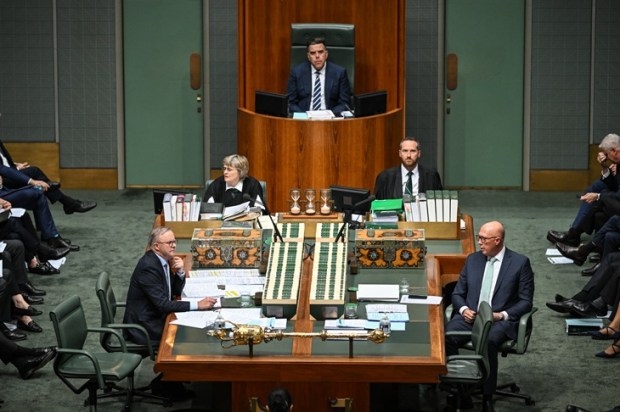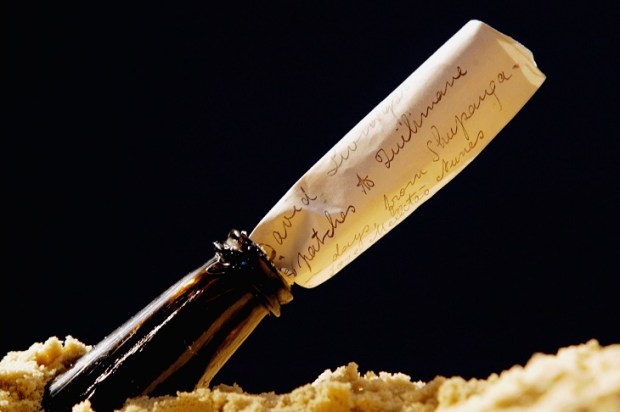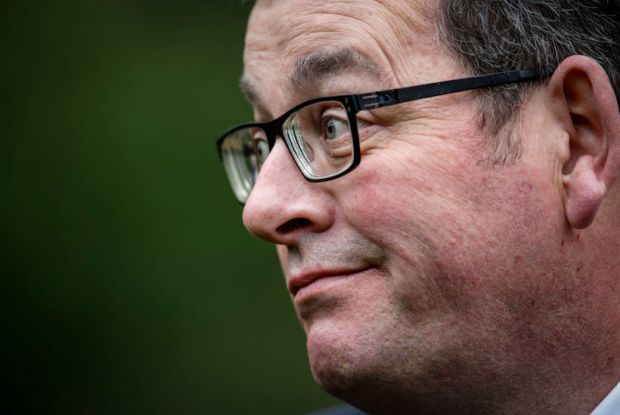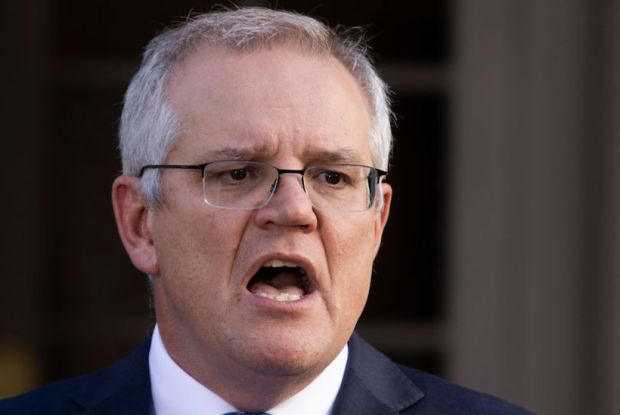On the eve of the referendum to change the Constitution by inserting a new chapter IX, the so-called Voice, people have a final chance to draw a deep breath and reject this structural change to our democracy by voting ‘No’.
The proposal is not benign; it is not simply an advisory body; it is not a matter of ‘being on the right side of history’, or Noel Pearson’s claim that ‘voting ‘Yes’ is morally right’, or that we as a nation will be diminished in the eyes of the world or any other saccharine claim that has been made about the impact of this new chapter.
These emotive and empty arguments disguise the very real and sweeping change that is being proposed.
It shouldn’t have to be stated but our democracy is a product of the Constitution. It’s the scaffold on which our democracy operates. Change the Constitution and you change the way our democracy operates.
It is that simple. Yet many people and organisations do not appear to understand the very nature of the Constitution or they are deliberately ignoring it out of ignorance or advantage.
In the Constitution there are currently three pillars that give equal democratic rights and protection to all Australians; the Parliament (Chapter I); the executive government (chapter II); and the judicature (Chapter III).
The Voice is a structural change to the Constitution, adding what I would term a fourth pillar to the operation of our democracy, that bestows unprecedented powers and rights on a minority.
It is the antithesis of the egalitarianism that the constitution fosters and of which Australians are so proud … special constitutional rights and representation for one group of Australians over their fellow Australians is abhorrent.
The changes don’t just impact Aborigines. It impacts all Australians as it changes our foundational document. It is not about ‘recognition’ of Aborigines in the Constitution, it is about power, not some anodyne advisory Voice that politicians can listen to if they choose as proponents are now arguing.
‘Yes’ campaigners claiming that the Voice is simply an advisory body is nonsense. There is already a plethora of ‘voices’ that can be listened to by government. So why would a government listen to another ‘voice’ enshrined in the constitution if, as activists claim it doesn’t listen now?
It is because the ‘Voice’ would be justiciable. Advice that was rejected by government or the executive could well be tested in the High Court, but as Prime Minister Albanese has said it would be a brave government that rejected the advice.
Proponents of the Voice and authors of The Uluru Statement are now crab-walking away from what they have previously said about its purpose and powers.
Take, for example, the reported statements of Professor George Williams and Professor Megan Davis who stated: The Voice to Parliament is a structural reform. It is a change to the structure of Australia’s public institutions and would redistribute public power via the Constitution, Australia’s highest law.’
Their statements should not be discounted. And they are not alone in their claims. A quick Google search reveals many similar claims by ‘Yes’ campaigners which are now being swept under the carpet.
This is about politics and transferring powers to a minority that are not available to a majority. In a nutshell two classes of citizenship.
The debate about this change to the Constitution has been skewed from the outset as it has focused almost solely and emotively on Aboriginal Australians and disadvantage.
The initiative for it is driven by Aborigines. Basically, only Aborigines have been consulted, there have been no series of constitutional conventions, the broader community has not been engaged in any meaningful way about changes to the Constitution which belongs to all Australians.
Only now when it comes to a vote to radically change the nature of our democracy has the broader Australian public been drawn into the discourse with a fait accompli as to the choice on offer with only a simple Yes or No on a ballot paper.
For a change of this magnitude to our democracy it is not good enough.
In my view, there should have been a real discussion about the constitutional impact on all Australians over the proposed recognition of Aborigines in the Constitution.
Another concern is that the debate has also revealed a lack of understanding about the underpinnings of our democracy by large sections of the community and business community and also a level of cynicism and manipulation of the debate at the expense of our democracy.
Let me give an example.
BHP has donated $2 million to the ‘Yes’ campaign, but zero dollars to the ‘No’ side of the debate. They are not alone in this. It has been reported that the Big Four Banks have also donated cash and in-kind support of $7 million to the ‘Yes’ camp. Countless other businesses and philanthropic organisations have also donated.
But back to BHP and their generous gift to help change to Constitution.
Why do they choose to donate and why only to the ‘Yes’ campaign?
Geraldine Slattery, BHP’s Australian Operations Chief, is reported as saying the support came after consulting with various traditional groups and Aboriginal stakeholders where it was expected that BHP would support the Voice to Parliament.
She said the consultation was part of BHP’s Reconciliation Action Plan.
‘They’re (Aborigines) really integral to our ability to run our operations, grow our business and to the continuity of the business and they are integral to the creation of long-term shareholder value,’ Ms Slattery is reported as saying.
‘We recently engaged with many representatives from traditional groups and Indigenous businesses and organisations as part of our work in developing our new Reconciliation Action Plan in Australia, which was released in June.
‘It was clear to us that Indigenous stakeholders expected BHP to advocate for a Voice given we operate on traditional lands and worked closely with traditional owners.
‘BHP’s relationships with Indigenous Australians are fundamentally important to our company. We operate on traditional lands, and we engage and partner widely with Indigenous communities and Traditional Owners. We are the largest resources sector employer of Indigenous Australians, and we are a rapidly growing partner to Indigenous-owned businesses.
‘The outcome of the referendum will be determined by the Australian people. We recognise that there is a diversity of views, as may be expected for such a meaningful and important initiative.’
Risibly she then added: ‘We will support informed, respectful discussion within our company and more broadly about the Voice, why it has been proposed and what it is seeking to address. We will provide opportunities for employees to get the information they need and feel safe to discuss different views with their colleagues and communities, so they can make their own informed decisions.’
Ms Slattery may want ‘informed, respectful discussion’ but BHP has only donated $2 million to the ‘Yes’ campaign. If BHP believed in informed discussion, it would have also donated $2m to the ‘No’ campaign, but the company didn’t.
Are mining companies hoping to receive a commercial advantage from the Voice to Parliament, rather than concerning themselves with the broader implication it will have on the operation of our democracy?
For some large mining companies, this may be a transactional issue regarding the Aboriginal land upon which they operate.
The same may be true of other large companies, who have their eye on commercial ends at the potential expense of the Commonwealth.
BHP, for example, consulted one set of stakeholders, not the broader community to whom the Constitution belongs.
The Constitution should not become a vehicle to pursue commercial outcomes or curry favour with particular minorities, yet this seems to be the direction corporations have taken.
Part of the difficulty with this referendum is that two questions, Recognition and the Voice, are conflated and deliberately so by ‘Yes’ campaigners.
I believe most people are supportive of and amenable to Recognition of Aborigines as the first peoples in the Constitution if inserted as part of a preamble. I know I am.
The ‘Yes’ campaign clearly thought this swell of goodwill could be manipulated to achieve a far more radical outcome than simple recognition and that is a fundamental structural change to our polity
Yet recognition is now inextricably entwined with the Voice which really is a separate issue. You can have recognition without it … and should.
Recognition alone would not alter the structural pillars of our Constitution and would have won broad acceptance if put as a standalone issue sometime in the future this should be proposition should be tested after proper consultation with the whole community.
The Constitution is not a plaything for activists; it is not a tool to be used to accommodate business outcomes; it is not a vehicle to assuage ‘white guilt’; it is not meant to favour and empower one group of Australians over another, and it certainly should not be tampered with to transfer power and create two classes of citizens.
There is equality before the constitution and yes, there are not equal outcomes or treatment for all Australians but these are mostly to do with social economic disadvantage that should be dealt with via policy, not constitutional change.
The Constitution guarantees equal political rights and protection for all Australians.
The proposed Voice is a structural departure from these principles.
People of goodwill who support reconciliation, land rights, Mabo, the Apology, and even special rights for aborigines cannot support the Voice and I include myself amongst them.
The way ahead to improve outcomes for Aborigines is not to create two classes of citizen with special rights, but to understand and embrace the idea that we are all equal and that includes Aborigines believing that in their hearts too.
Until equality is embraced fully as a concept (and it cannot be built into a Constitution by creating two classes of citizenship) and victimhood is abandoned then reconciliation and progress for Aborigines will continue along its stuttering path.
Having said that it is critical to understand that the worst aboriginal disadvantage lies in the isolated outback communities.
The disadvantage they face should be dealt with as a national priority.
As Anthony Albanese has said if the Voice fails to get up at least the debate will have brought the issue of aboriginal disadvantage to the fore.
Let’s not lose that possibility. Vote ‘No’.

























